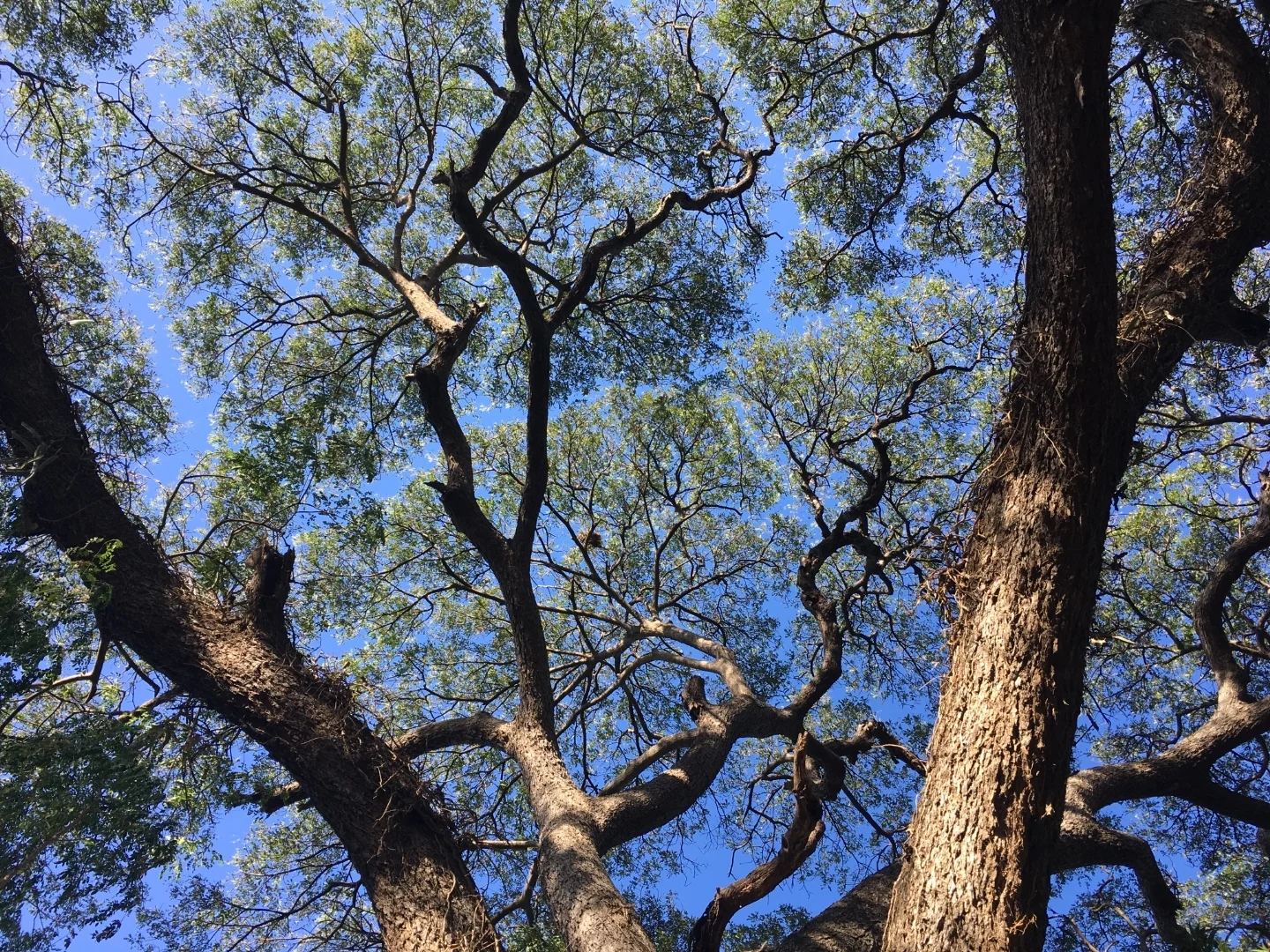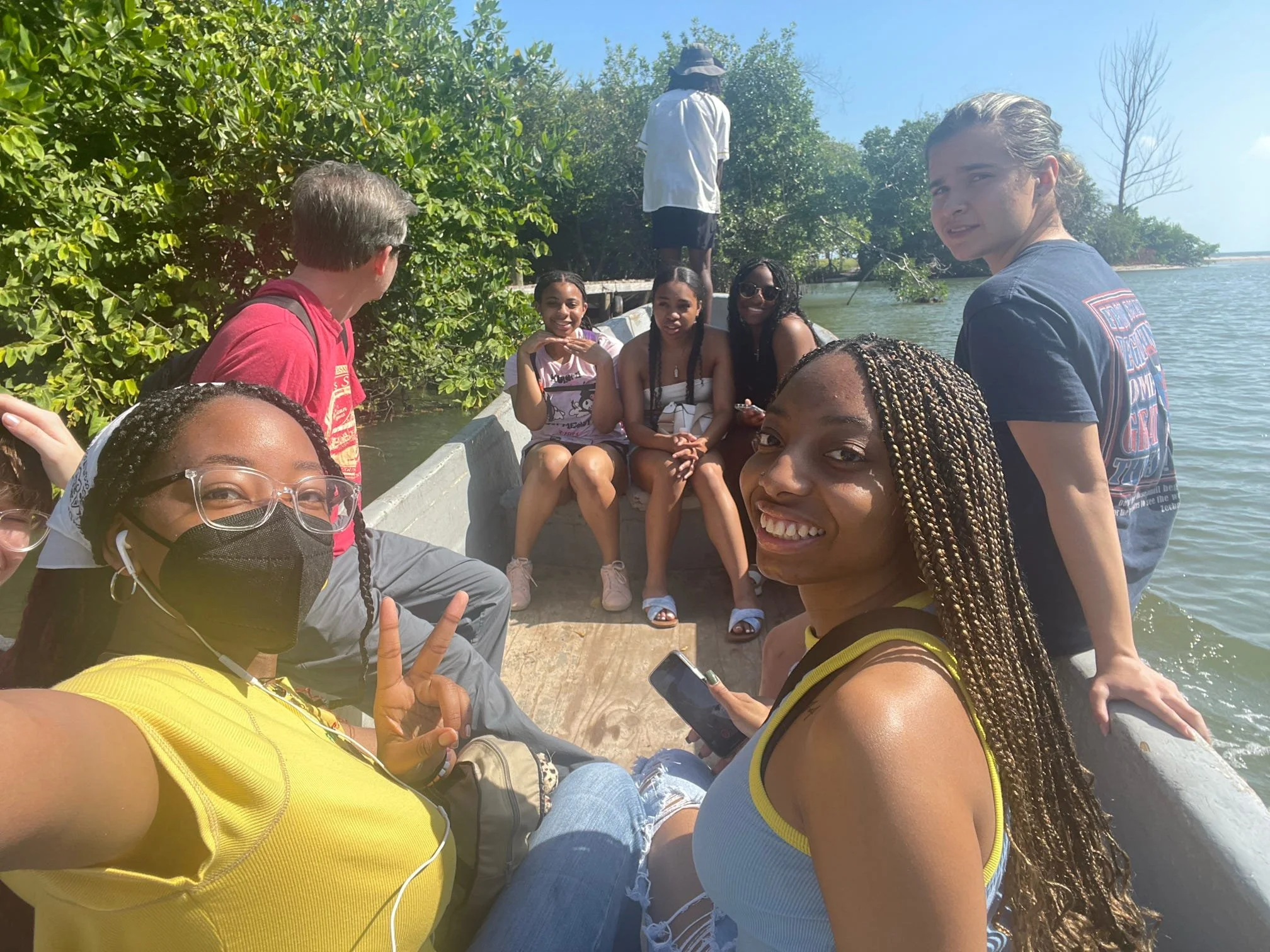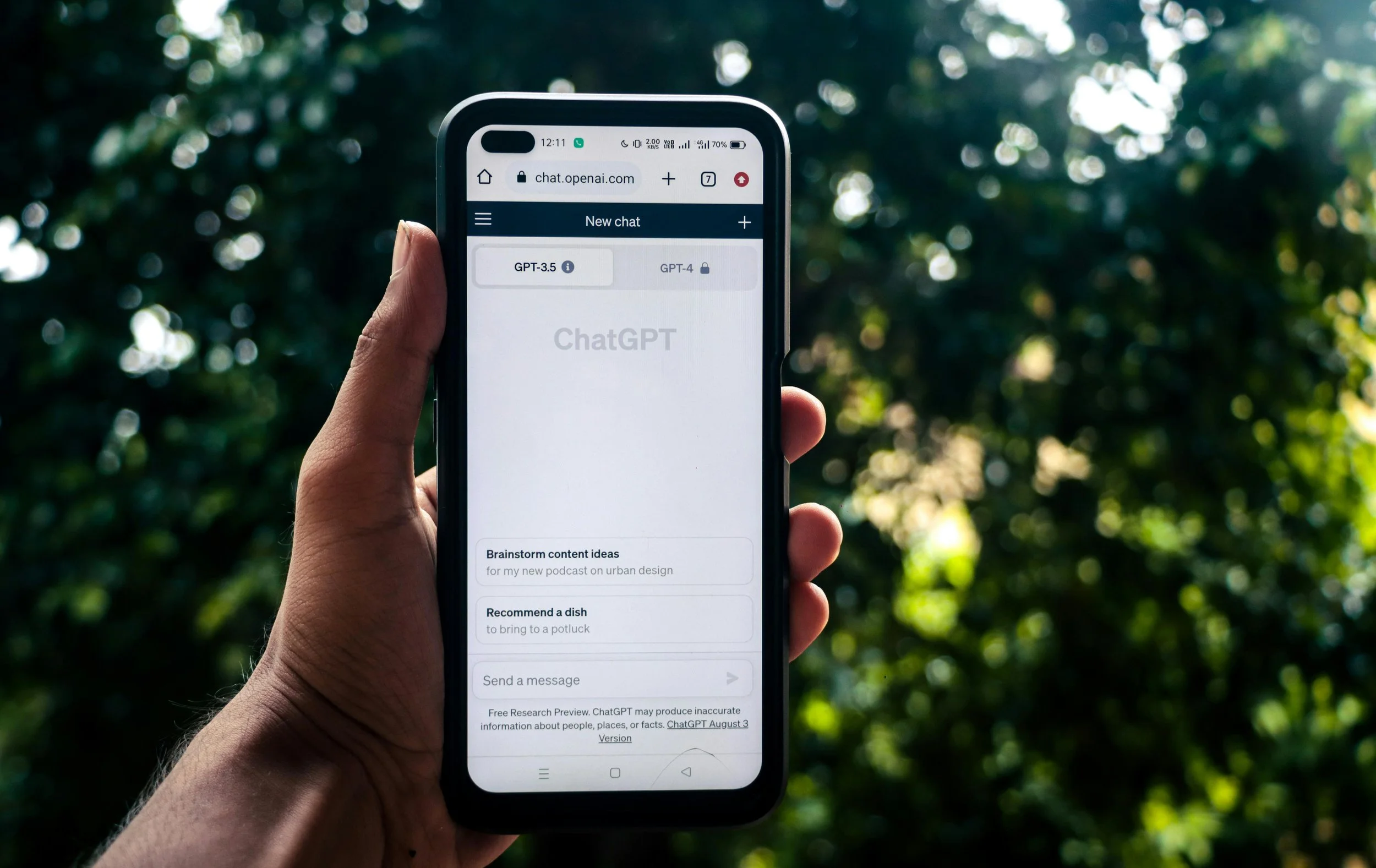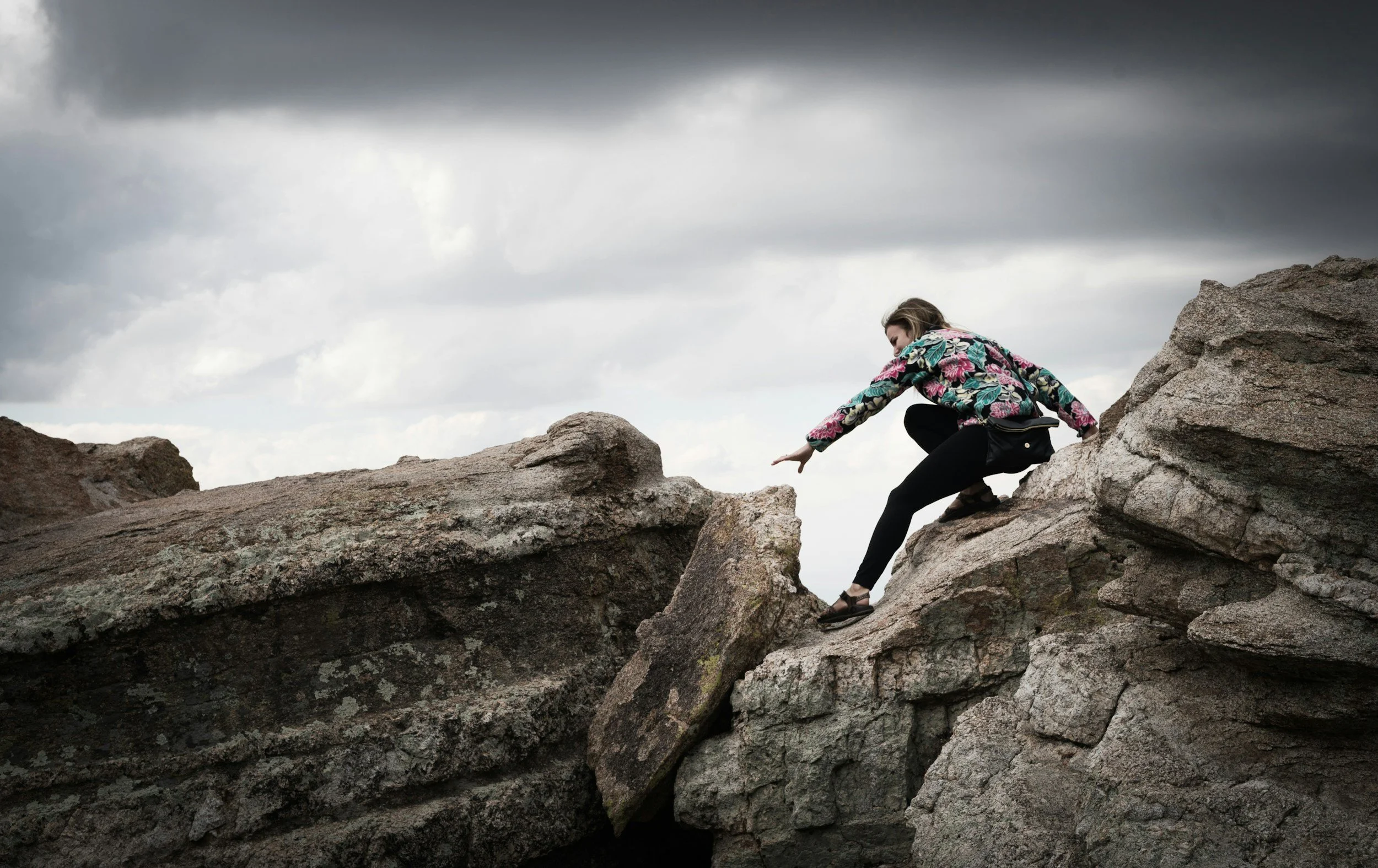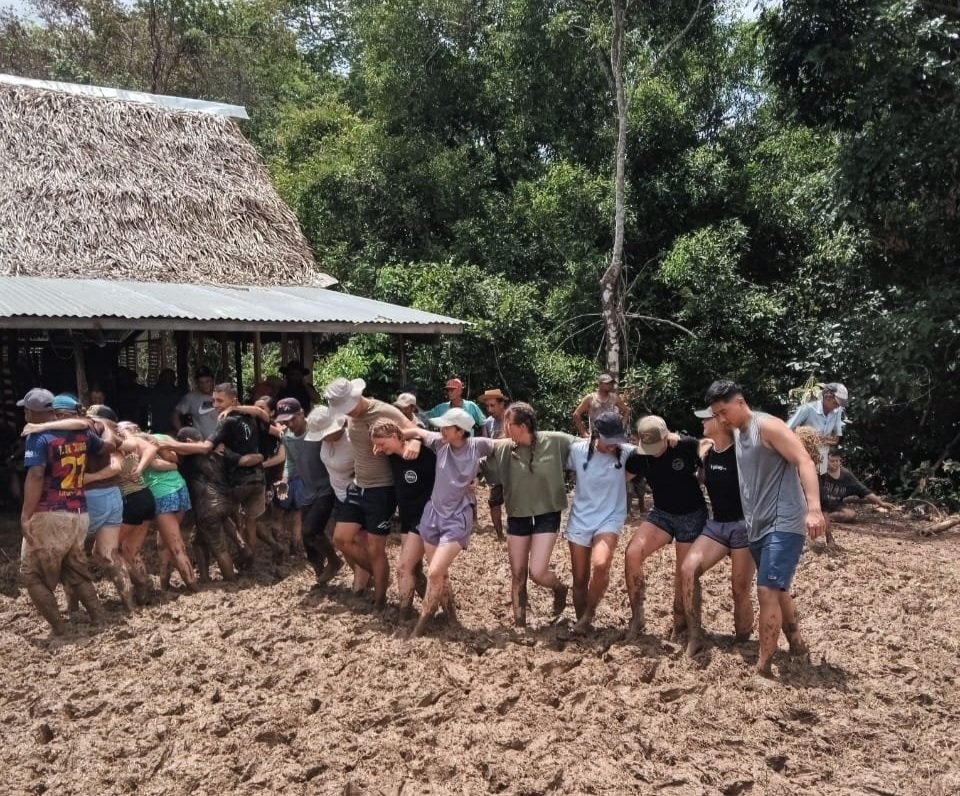Behind the Scenes of a Study Abroad Program: A Guide’s Perspective in Egypt
/When students signed up for a faculty-led study abroad program in Cairo and Alexandria, they expected awe-inspiring monuments and academic revelations. What they couldn’t see was the year of behind-the-scenes work, the cultural tightrope walking, and the constant problem-solving required to make their experience transformative rather than chaotic. As their guide, I was equal parts historian, therapist, and logistics wizard—and this is what that really looked like.
Building the Program From Scratch
The Puzzle of Ramadan Logistics
Planning a study abroad program in a country where we'd never operated before was like assembling a puzzle blindfolded. The biggest challenge? Designing an academically rigorous schedule around Ramadan restrictions without leaving giant gaps in the afternoons. Museums and archaeological sites closed earlier, energy levels dipped in the afternoon heat, and we had to carefully balance rest with engagement.
Prepping Students for Reality
Many students had never traveled to the Middle East before. Before departure, we held sessions on:
Cultural respect (how to dress, interact with locals, and navigate religious spaces)
Survival skills (the importance of hydration, sunscreen, and avoiding Cairo’s infamous public transit)
Religious awareness (the significance of Ramadan and how to be sensitive as non-Muslim visitors)
Managing expectations ("No, we can’t just ‘pop into’ the Great Pyramid whenever we want")
Day 1: Citadel of Saladin
When the Plan Falls Apart (Because It Always Does)
"The Site Is Closed Today. Why? Because."
No amount of preparation could prevent the inevitable last-minute changes:
The Roman theater in Alexandria closing unexpectedly because the guards decided to leave early.
Extended lunch breaks when both students and faculty needed recovery time from morning excursions.
Extending museum visits when students became unexpectedly engrossed in discussions about whether or not Ramesses II was the pharaoh in Moses’ story.
Reworking the itinerary on the fly when extended museum visits meant we wouldn’t have enough time for the next activity
Flexibility wasn’t just a skill—it was the core requirement for this job.
The Daily Reality of On-the-Ground Challenges
Lost in Translation (Literally)
While many Egyptians speak English, students needed to learn a few basic phrases to empower them. Before departure, I sent to the WhatsApp group a guide with basic Arabic phrases—simple greetings, "thank you," and "how much?"—to help them navigate markets and interactions. But Arabic pronunciation became an unexpected hurdle. Sounds like the guttural "ع" (ayn) or the emphatic "ح" (ha) didn't exist in their native languages. Some struggled so much they'd laugh at their own attempts, while others hesitated to try at all, worried they'd offend locals by butchering the words.
On long bus rides between sites, I turned language practice into a group activity. Those who wanted to learn would repeat after me, drilling "شكراً" (shukran) and "مرحبا" (marhaba) until the consonants clicked. Progress was uneven—some nailed it quickly, while others needed patient correction—but by Day 3, even the most hesitant could greet someone confidently. The payoff was immediate: shopkeepers' faces lit up when students said "من فضلك" (min fadlak, "please") with near-perfect accents. One student admitted, "I thought Egyptians would humor me, but they seemed genuinely happy we tried." By the trip's end, they were greeting waiters, museum guards, and even strangers on the street—no longer tourists, but guests who'd learned to say "hello" properly.
Despit that, daily interactions often required quick thinking and translating on the students’ behalf.
From small interactions like helping them find restaurants that could accommodate dietary restrictions, to playing detective to find working ATMs or currency exchanges. Most students relied on the hotel's ATM to withdraw Egyptian pounds directly from their US accounts—until the day it stopped working. Suddenly, everyone needed cash at the same time. With no backup ATM in the hotel, I found myself leading small groups through Cairo's streets, hunting for a functioning machine. The search wasn't limited to just that one incident—it became a recurring mission, scouring museums, bazaars, and random corners for ATMs that would actually dispense cash. I'd walk back and forth between the hotel and nearby ATMs, shepherding students in shifts so everyone could withdraw safely. Some machines rejected foreign cards; others were out of service. Each failed attempt meant another trek through Cairo's bustling streets. Eventually, we'd find a working ATM—sometimes in an unexpected place, like a quiet side street or tucked inside a museum. The relief on the students' faces was immediate, though I'm sure a few of them learned the hard way to always carry backup cash in Cairo.
Another time, I administered first aid when a student cut themselves on the bus to Alexandria, while checking with the driver to know when we'd get moving again after being stuck in traffic for 40 minutes.
When the Heat Won (Every Single Day)
March in Egypt was fairly hot and humid. By Day 3, exhaustion set in:
Distributing fresh water bottles to students dozing off in the bus between activities
Constant reminders to drink water, reapply sunscreen, and wear hats.
Adjusting schedules on the fly when the sun drained everyone’s energy.
Ramesses II status in Memphis
Where debates on historical accuracy happen.
My Role: More Than Just a Walking Guidebook
From the moment I received my first book about ancient Egypt at seven years old, I was hooked. The pyramids, the pharaohs, the mythology—it all felt like a grand, mysterious story waiting to be explored. Over the years, that childhood fascination deepened into a lifelong passion. I’ve visited Egypt’s monuments multiple times, yet each return feels like the first—because every visit brings new discoveries, new layers of understanding.
When I guided this faculty-led program, I didn’t just want students to see Egypt. I wanted them to feel it the way I did. That meant striking a balance between friend and professor—close enough to banter and create genuine connections, but authoritative enough to ensure they listened.
Cultural Interpreter
I didn’t just recite historical dates—I helped students decode Egypt:
Explaining why bargaining is expected in markets (and how to do it). That included accompanying some of them to the buzzing Khan El Khalili market with its labyrinth of stalls overflowing with spices, lanterns, and souvenirs. A group of students had asked me to accompany them during free time—not just to navigate the chaos, but to help them find "perfect" gifts for their families back home. Their excitement was tinged with anxiety. Some worried about overpaying; others agonized over choosing the "right" item, as if a single imperfect souvenir would disappoint their parents. The pressure turned what should've been a fun outing into a high-stakes mission.
I became equal parts haggling coach and therapist. At each stall, I demonstrated bargaining—letting them watch as I negotiated for a backgammon set, then nudging them to try ("Start at half the price!"). Between shops, I reassured them: "There's no 'perfect' gift. Your presence here is what matters." By the third stall, the tension eased. One student laughed as she bartered down a scarf vendor; another proudly handed me a carved box, whispering, "My mom will never guess I paid less than this." They left with arms full of treasures—and the realization that the real souvenir was the story of how they'd earned it.
Breaking down Ramadan customs when students nervously asked, "Is it rude to eat in public?". Explaining how it’s about community and foreigners are not held to the same standard as locals.
Putting modern Egyptian life into context so they saw beyond the ancient ruins.
Academic Connector
At the Step Pyramid of Djoser, I watched students' eyes glaze over with that familiar tourist trance - the kind where awe overtakes analysis. My job wasn't to lecture (that was the professors' domain), but to be the bridge between wonder and coursework. When their attention drifted to Instagram-worthy angles, I'd gently refocus them and ask questions about their curriculum. The real challenge came when empty stomachs started rumbling louder than our academic discussions - even the most dedicated scholars lose focus when lunch is delayed by pyramid-induced time warps..
Day 6: Alexandria Library
The Invisible Safety Net
While faculty focused on teaching, I handled everything else:
Mediating roommate conflicts (yes, even abroad, drama follows).
Midway through the trip, tensions flared between two groups of students. One group felt their peers were treating Egypt like a casual holiday—laughing too loudly in sacred spaces, haggling aggressively in markets—while the other group insisted they were just "having fun" and saw no harm in their behavior. The close quarters and exhaustion amplified frustrations, threatening to sour the group dynamic. The conflict escalated quickly. Group 1 grew resentful, whispering about "disrespectful tourists" in their own ranks, while Group 2 dug in their heels, dismissing the criticism as uptight. With days left on the trip, the friction risked overshadowing the experience for everyone.
I pulled each group aside separately. To Group 1, I acknowledged their concerns but urged them not to let others' behavior dictate their own enjoyment. To Group 2, I framed it plainly: "This isn't a resort—it's a cultural exchange. Even small rudeness undermines what we're here to learn." I avoided scolding; instead, I appealed to their pride in being good travelers. The adjustments were subtle but meaningful. Group 2 toned down their boisterousness in mosques; Group 1 eased their policing. By the final days, the drama faded—not with a grand reconciliation, but with a quiet return to shared wonder.
Coordinating a doctor’s hotel visit for a sick student— part advocate, and part reassuring presence during a scary experience.
One evening, a student texted me asking for Advil after missing dinner with the group. Having noticed them looking exhausted during afternoon activities, I arrived at their hotel room with my full emergency kit—only to find them burning up with a 102° fever and coughing uncontrollably. Despite clear symptoms, the student refused to see a doctor. Between coughs, they admitted their fear: the cost of a private hotel visit. Convinced they couldn't afford care, they insisted on toughing it out—even as their fever spiked.
I sat with them, listening to their concerns before explaining how medical costs in Egypt differed from home. "What if I guarantee a set price?" I asked. Relieved, they agreed. After coordinating the doctor's visit, I translated symptoms and instructions, then ran to the pharmacy for their prescribed medication. Though they missed the next day's Alexandria trip, by evening the meds had worked—and I became their personal pill reminder, checking their pockets daily to ensure they'd taken their meds. When they rejoined the group, their grin said it all: they'd trusted the process, and we'd gotten them through.
Playing counselor during downtime. Whether helping navigate first-time travel anxieties or giving big-sister advice about relationships back home.
On quite a few occasions, students would chat with me about their personal lives, our relatively short age gap making me kind of a temporary big sister to them. But on a other instances I was called or texted for small “emergencies”. Those ranged from asking if their outfit was appropriate to wear for the next day's activities to helping them figure out how to get back to the hotel because they weren't able to get an Uber since it was time for people to break their fast (I had previously warned them that there was a 30-minute window between 5:45pm and 6:30pm where things would be unavailable/closed because of iftar). Luckily for them I was nearby, walked to their location and got us a taxi together. The taxi driver hadn't broken his fast yet, so he stopped at an iftar stop managed by city workers for dates and water. We made it back together, and the students got to see the community spirit of Ramadan in action (they also got to eat delicious dates and a free bottle of water).
Navigating chaos also included helping them avoid beggars on the streets while being respectful and mindful of people's condition. After a museum visit, a cluster of students froze outside as three persistent beggars surrounded them, hands outstretched. The students, torn between discomfort and guilt, didn't know how to disengage without being rude—or worse, incentivizing more attention. I stepped in, speaking calmly to the beggars in Arabic while subtly herding the group forward. Later, I demonstrated the "polite but firm" exit strategy: "La, shukran" (No, thank you) while avoiding eye contact and moving purposefully. By the next encounter, students mimicked the technique perfectly—one even joked, "I've mastered the 'sorry-I'm-a-busy-local' walk."
Creating a safe space for “dumb” questions. Students had a lot of questions regarding ancient and modern Egypt. I was here to answer all of them without judgement to help them understand and truly absorb their surroundings.
Late-night messages pinged my phone: "Can I wear this top tomorrow?" followed by a mirror selfie. First-time travelers second-guessed every cultural nuance, terrified of unintentional disrespect. I'd reply with specifics: "Bring a scarf with you just in case." or "Those pants are fine, but wear comfy shoes, we will be walking a lot." Their relief was palpable the next morning—shoulders relaxed, outfits local-approved, confidence restored. These exchanges generated more questions to understand why this item is appropriate but that one is not. Sometimes the answers were related to culture or religion “Everyone needs to cover up to go inside a religious establishment”; other times they were more pragmatic “We are going to be in the desert at 2pm, if you wear this you’ll probably get a sunburn”.
Day 4: the great pyramids of giza
Day 1: Coptic Cairo
The Moments That Made It All Worth It
"Wait, this is where the Holy family hid?"
For students from a Lutheran university, visiting Coptic Cairo was a revelation. Seeing churches older than their home country—and learning that Egyptian Christians make up 10% of the population—shattered their assumptions about the region.
The Mediterranean’s Secret
At the Kom El Shoqafa catacombs in Alexandria, I explained how the site used to be underwater and must be constantly pumped to stay dry. Their perspective shifted as they realized the Mediterranean hides countless artifacts and ancient structures lost to rising sea levels over millennia.
The Step Pyramid Epiphany
Going inside the Step Pyramid was an awe inspiring experience for most of the students as one philosopher that they learned about during the semester was Imhotep.
Standing inside the first pyramid built in Egypt, Imhotep’s architectural masterpiece, a student turned to me and said, "It’s crazy that I have the privilege of seeing his work, it makes everything seem so REAL" That moment—when theory became real—is why these trips are so important.
Day 5: the step pyramid
Why the Guide Is the Secret Ingredient
Faculty provides the academics. Students bring the curiosity. But the guide? We:
Turn chaos into learning (like explaining why Alexandria’s coastline hides ancient ruins underwater).
Handle emergencies so professors don’t have to.
Make the unfamiliar feel safe, so students can focus on growth instead of survival.
At the end of the trip, one student pulled me aside and said, "I came here full of apprehension and only knowing what I heard on the news. Now I don’t want to leave." And that’s the magic of study abroad—when a place doesn’t just teach students, but changes them.

